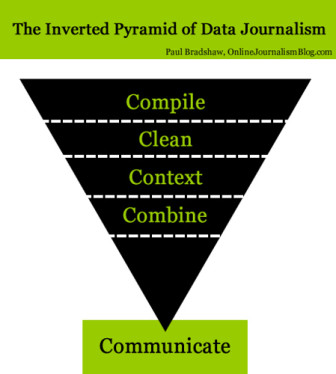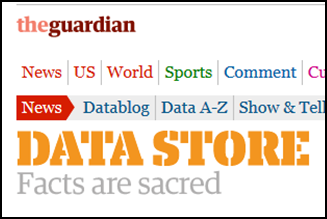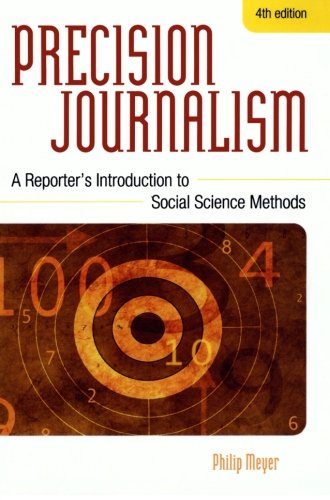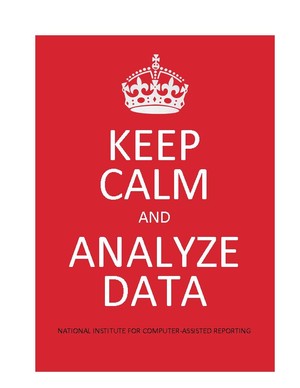

Data Journalism: GIJN’s Global Guide to Resources
As our governments and businesses become increasingly flush with information, more and bigger data are becoming available from across the globe. Increasingly, investigative reporters need to know how to obtain, clean, and analyze “structured information” in this digital world. Otherwise, they and the news organizations they work for will miss some of the most important stories of our time. Even in relatively closed societies, journalists can  now work their way from the outside in, using international data sets to reveal what’s happening in their home countries.
now work their way from the outside in, using international data sets to reveal what’s happening in their home countries.
Here is a list of resources to get you started, but we want to keep updating our community with the best resources available. Do you know of a great data tutorial we haven’t listed, perhaps in a language other than English? Help us keep this resource guide comprehensive by sending your favorite resource to: kate.willson (at) gijn (dot) org.
Key Resources
National Institute for Computer-Assisted Reporting, a project of Investigative Reporters and Editors, launched in 1989 to train reporters around the world on how to use data as part of broader investigations. In addition to “boot camps” and in-office training, NICAR offers a data library, practice data sets, and hosts the original annual conference on computer-assisted reporting. IRE also publishes the popular book, Computer-Assisted Reporting: A Practical Guide.
Poynter offers Five Tips for getting started with computer-assisted reporting, and 10 Tools to analyze datasets more efficiently.
The Center for Investigative Journalism published a manual on data journalism “for all journalists who want to master the art of interrogating and questioning numbers competently.” CIJ also provides a slew of additional books, guides and video resources of aspects of data journalism.
Data-Driven Journalism offers a collection of resources for computer-assisted reporters.
Periodismo de Base de Datos provides tutorials and resources on data journalism for Spanish-speaking reporters.
Arab Reporters for Investigative Journalism offers this brief introduction to data journalism (in Arabic).
How To Create a Data Journalism Team is described by Fabiola Torres López, a co-founder of Ojo Público, a digital media site in Peru comprised of six journalists and two developers specializing in data reporting.
The International Consortium of Investigative Journalists provides a selection of video tutorials on basic Excel functions, as well as how to background a person or company, or find federal court documents in the U.S.
The International Journalists’ Network maintains a blog of the latest trainings, tools, and resources for data journalists.
Hacks/Hackers is a global movement bringing together computer programmers and investigative journalists to tell powerful data-driven stories. Trainings offered through regional chapters.
The Investigative Dashboard lists tools for data mining, visualization and social network analysis. Google search your tool of choice and you’ll surely find tutorials on how to begin.
Data Mining
Code Academy offers a series of free interactive trainings on the basics of HTML, CSS, JavaScript, Python, Ruby, and PHP.
Massachusetts Institute of Technology offers a series of free online courses in computer programming with Python, Java, and C++.
Michael Martl publishes an open-source textbook on how to program with Ruby on Rails.
ProPublica ran this “shopping list” of tools and training guides for scraping data from the web using Ruby.
Online Journalism published an introduction to using ScraperWiki to obtain data from the web.
Data Analysis
Electronic Data Resource Service at McGill provides a tutorial on how to export a table from PDF to Excel.
School of Data offers a series of tutorials – from finding datasets, to basic Excel skills and using the results to tell a story.
Dan Nguyen put together this tutorial on using Google Refine to clean structured data sets, and also links to other video tutorials on Google Refine.
Github offers a “Gentle Introduction to SQL.”
Visualization & Mapping
Peter Aldhous put together a primer on using Excel’s free social network plugin, NodeXL.
Esri offers a series of free online courses for those interested in mapping with ArcGIS.
Statistics
OpenInto hosts this free textbook on statistics
Knight Digital Media Center provides free, two-day online courses.
Coursera offers a number of online statistics courses including:
- Passion-Driven Statistics through Wesleyan University
- Statistics, Making sense of data, offered though the University of Torono
- Statistics One, offered through Princeton University
- Introduction to Statistics, offered through the University of California Berkley
Data & Technology Blogs
ProPublica Nerd Blog, secrets of data journalists and newsroom developers
Data Blog, the Guardian’s blog on computer-assisted reporting
Nacion Data, Spanish-language data journalism blog of the Argentinian daily La Nación.
Open Knowledge Foundation, global movement to open up knowledge around the world and see it used and useful
Toledol, a Portuguese-language blog about computer-assisted reporting
Computational and Data Journalism, news and technology articles about data journalism
Computational Reporting, all about data mining
Dajore, data journalism research
Driven by Data, how data journalism is sifting through the facts
Vis4.net, random thoughts on information visualization and data journalism
Reporter’s Lab, Duke University’s blog on tools, techniques and research for public affairs reporting.
Tow Center for Digital Journalism, Columbia’s blog on how technology is changing journalism, its practice and its consumption
Books
Computer-Assisted Reporting: A Comprehensive Primer, By Fred Vallance-Jones and David McKie
Computer-Assisted Reporting: A Practical Guide, the E-version by Brant Houston
Computer-Assisted Research: Information Strategies and Tools for Journalists, By Nora Paul and Kathleen A. Hansen
The Data Journalism Handbook, European Journalism Centre and Open Knowledge Foundation
Mapping for Stories: A Computer-Assisted Reporting Guide, By Jennifer LaFleur and Andy Lehren
Precision Journalism: A Reporter’s Introduction to Social Science Methods, by Philip Meyer
Conferences
NICAR hosts the original annual conference on computer-assisted reporting, which is attended by hundreds, and also puts on data-specific boot camps. 
Data Harvest is a collaboration between the Journalismfund.eu, Wobbing Europe and FarmSubsidy.org. The next conference is scheduled for May 2014 in Brussels.
The International Journalism Festival in Perugia, Italy, includes a School of Data Journalism training.
The Global Investigative Journalism Conference, held every two years, hosts a broad range of data-specific trainings.
Ghana Databootcamp trains participants in Ghana on how to locate, obtain and analyze public data on the extractive industries.
 Kate Willson is news adviser in the Student Media Department at Oregon State University, Corvalis, and a consultant to the Global Investigative Journalism Network. She served as a senior reporter with the International Consortium of Investigative Journalists and has received more than 20 awards for her investigative and crime reporting.
Kate Willson is news adviser in the Student Media Department at Oregon State University, Corvalis, and a consultant to the Global Investigative Journalism Network. She served as a senior reporter with the International Consortium of Investigative Journalists and has received more than 20 awards for her investigative and crime reporting.










